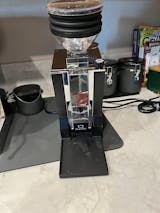How To Properly Store Your Coffee Beans

Freezing has been used for centuries as a way to extend the life of many foods. A diverse selection of foods can be frozen. Bread, meat, fruits, vegetables and even butter can be successfully stored in your freezer. Freezing even maintains many of the vitamins and nutritional value of a wide variety of foods. Coffee, however, isn’t as likely a candidate for storage in the freezer.
Coffee has four main enemies against freshness: air, heat, light and moisture. At first, freezing doesn’t seem to contain many of the offending enemies. However, appearances can be deceiving.
Coffee beans have been roasted in order to enhance flavor. The beans are also porous. Unfortunately a freezer can contain many other foods which have odors. The porous beans can absorb the flavors of many other frozen foods. Flavored coffees can be pleasant, but no one wants to drink seafood or garlic flavored coffee.
Moisture can also be absorbed by the coffee beans. Moisture can cause deterioration and loss of flavor. The more often you take coffee out of the freezer and put it back in, the more moisture absorption takes place into the bean. If you absolutely need to freeze some coffee because you have a large excess you’d like to keep, only freeze it once. The more you take it in and out of the freezer, the more damage you do.
Freezing also breaks down the oils in the beans. The oils contribute to the flavor of the coffee. Breaking down the oils means taking away flavor, and let’s face it, a large part of a good cup of coffee is the flavor.
When it comes down to it, freezing is not the best way to store your coffee. Keep coffee stored in a cool, dry, airtight container away from light. Freezing coffee is possible, and is best if you only freeze it once. The resulting loss of flavor and quality from repetitive freezing makes it a method of storage to stay away from. Your best bet is to purchase only enough beans or ground coffee to supply you for 1-2 weeks. Enjoy the coffee at its freshest!



















